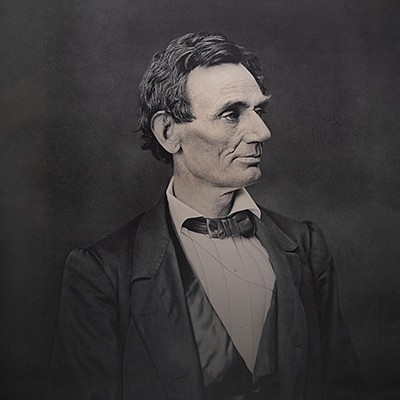C. S. Lewis Autograph Letter Signed to Inklings Friend Hugo Dyson, with First Edition of Transposition and Other Addresses
Two ways to bid:
- Leave a max absentee bid and the platform will bid on your behalf up to your maximum bid during the live auction.
- Bid live during the auction and your bids will be submitted real-time to the auctioneer.
Bid Increments
| Price | Bid Increment |
|---|---|
| $0 | $5 |
| $50 | $10 |
| $200 | $25 |
| $500 | $50 |
About Auction
Feb 14, 2024
RR Auction's February Fine Autographs and Artifacts auction boasts 600 unique items, and honors Presidents' Day with a special section featuring incredible presidential autographs, artifacts, and memorabilia. RR Auction support@rrauction.com
- Lot Description
Two items sent by British scribe C. S. Lewis to his close friend Hugo Dyson. The first is an ALS signed “C. S. Lewis,” one page, 5.5 x 8.5, March 9, 1949. The handwritten letter reads: “The first piece in this little ‘resurrection pie’ develops the theory wh. you expressed interest in last night.” The second item, the referenced “resurrection pie,” is a scarce first edition of Lewis’s book Transposition and Other Addresses, published in London by Geoffrey Bles in 1949. The work contains a selection of the addresses Lewis gave during and after World War II, sermons that were meant to bring courage and hope during a time of great peril in human history. It includes Transposition, Learning in Wartime, Membership, The Inner Ring, and The Weight of Glory, a famous sermon preached in the Church of St. Mary the Virgin, Oxford. The letter is in fine condition; the softcover book exhibits some edgewear and a split to the front flap of its jacket.
The book’s preface, as written by Lewis, in part: ‘This book contains a selection of the too numerous addresses which I was induced to give during the late war and the years that immediately followed it. All were composed in response to personal requests and for particular audiences, without thought of subsequent publication. As a result, in one or two places they seem to repeat, though they really anticipated, sentences of mine which have already appeared in print. When I was asked to make this collection I supposed that I could remove such overlappings, but I was mistaken. There comes a time (and it need not always be a long one) when a composition belongs so definitely to the past that the author himself cannot alter it much without the feeling that he is producing a kind of forgery. The period from which these pieces date was, for all of us, an exceptional one; and though I do not think I have altered any belief that they embody I could not now recapture the tone and temper in which they were written. Nor would those who wanted to have them in a permanent form be pleased with a patchwork. It has therefore seemed better to let them go with only a few verbal corrections.’
Hugo Dyson (1896-1975) was an English academic and a member of the Inklings, an informal literary discussion group that included C. S. Lewis and J. R. R. Tolkien. The latter, with Dyson, helped C. S. Lewis to convert to Christianity in 1931, particularly after a long conversation as they strolled on Addison's Walk at Oxford. - Shipping Info
-
Bidder is liable for shipping and handling and providing accurate information as to shipping or delivery locations and arranging for such. RR Auction is unable to combine purchases from other auctions or affiliates into one package for shipping purposes. Lots won will be shipped in a commercially reasonable time after payment in good funds for the merchandise and the shipping fees are received or credit extended, except when third-party shipment occurs. Bidder agrees that service and handling charges related to shipping items which are not pre-paid may be charged to a credit card on file with RR Auction. Successful international Bidders shall provide written shipping instructions, including specified Customs declarations, to RR Auction for any lots to be delivered outside of the United States. NOTE: Declaration value shall be the item’(s) hammer price and RR Auction shall use the correct harmonized code for the lot. Domestic Bidders on lots designated for third-party shipment must designate the common carrier, accept risk of loss, and prepay shipping costs.
-
- Buyer's Premium



 EUR
EUR CAD
CAD AUD
AUD GBP
GBP MXN
MXN HKD
HKD CNY
CNY MYR
MYR SEK
SEK SGD
SGD CHF
CHF THB
THB






